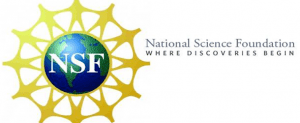Quantum News Briefs September 7: South Dakota Mines & Technology receives $5M grant to add a Quantum Materials Institute • IQM achieving prototype quantum processor with 99.9% qubit fidelity brings fault-tolerant quantum computing closer to reality • Neutral atom innovations by quantum systems accelerator mark quantum computing milestones • Indian government to shortlist quantum technology start-ups for funding in 2 months

South Dakota Mines & Technology receives $5M grant to add a Quantum Materials Institute

The South Dakota School of Mines and Technology is receiving a grant from the U.S. National Science Foundation.
The $5 million award is helping the school add a Quantum Materials Institute.
The institute will help advance quantum computing and secure quantum communications.
It will also add a minor in quantum information sciences. The school hopes the minor will allow more students to become trained in quantum information science.
In Other News: LiveScience reports “IQM’s prototype quantum processor with record 99.9% qubit fidelity brings fault-tolerant quantum computing closer to reality“
 Scientists at IQM in Finland recently announced they have made inroads toward “fault-tolerant” quantum computing after achieving record-low error rates in a prototype quantum processor — potentially paving the way to more practical and stable quantum computers according to Owen Hughes’ article in Seotember 3 LiveScience.
Scientists at IQM in Finland recently announced they have made inroads toward “fault-tolerant” quantum computing after achieving record-low error rates in a prototype quantum processor — potentially paving the way to more practical and stable quantum computers according to Owen Hughes’ article in Seotember 3 LiveScience.
Owens referenced the IQM Quantum Computers July 7 document explaining their technology had broken ground in two key areas: 1) the accuracy of operations between qubits and and 2) the stability of qubits over time.
IQM representatives said scientists had achieved 99.9% fidelity in two-qubit gate operations and hit a new record in “qubit relaxation time,” meaning the time it takes for a qubit to lose its quantum state.
These factors determine the precision and durability of quantum operations in a device. High accuracy, or fidelity, between qubits allows for more precise calculations and fewer errors. Meanwhile, the stability, or “coherence,” between qubits ensures that quantum information is maintained long enough to perform calculations.
These achievements bring fault-tolerant quantum computing — where errors in quantum calculations correct themselves automatically — closer to reality, IQM representatives said. This was particularly apparent in testing the quantum gates which are the building blocks of quantum circuits, similar to logic gates in classical computers. Logic gates are digital switches that act as decision-makers in computers, using binary data (1s and 0s) to perform basic operations.
In Other News: Phys.org reports “Neutral atom innovations by quantum systems accelerator mark quantum computing milestones”
 Collaborative research teams have made significant strides in developing quantum computing hardware and techniques based on neutral atoms, moving the future of scalable quantum computing closer to reality. Quantum Systems Accelerator (QSA), led by Lawrence Berkeley National Laboratory (Berkeley Lab) is a National Quantum Information Science Research Center that brings together more than 250 experts from 14 institutions, according to Keri Troutman, Lawrence Berkeley National Laboratory in September 6 article.
Collaborative research teams have made significant strides in developing quantum computing hardware and techniques based on neutral atoms, moving the future of scalable quantum computing closer to reality. Quantum Systems Accelerator (QSA), led by Lawrence Berkeley National Laboratory (Berkeley Lab) is a National Quantum Information Science Research Center that brings together more than 250 experts from 14 institutions, according to Keri Troutman, Lawrence Berkeley National Laboratory in September 6 article.
QSA-affiliated scientists have developed innovative methods for creating a stable, controllable, scalable platform for building hardware and implementing quantum operations.
Neutral atoms trapped in focused laser beams are less susceptible to perturbations from the environment, thus processing quantum information more effectively. By arranging neutral atoms in arrays, researchers can create larger quantum systems with dozens or hundreds of qubits, which are crucial for performing complex quantum simulations and developing large-scale quantum computers.
QSA is one of the Department of Energy’s five National Quantum Information Science Research centers, focusing on all three major technologies for quantum computing: superconducting circuits, trapped-ion systems, and neutral atoms.
In addition to co-designing and engineering new quantum hardware, QSA team members are developing software control systems to operate these devices and algorithms for important physics, chemistry, materials, and biology applications. By collaborating on all aspects of quantum technology, the Center is helping shift the field from theories to real-world tools.
Indian government to shortlist quantum technology start-ups for funding in 2 months
 India’s department of science and technology (DST) has asked start-ups engaged in quantum technologies to submit their proposals to receive the government funding according to India’s Financial Express. The selected proposals will be funded with up to Rs 25 crore each under the National Quantum Mission (NQM), DST secretary Abhay Karandikar told FE.
India’s department of science and technology (DST) has asked start-ups engaged in quantum technologies to submit their proposals to receive the government funding according to India’s Financial Express. The selected proposals will be funded with up to Rs 25 crore each under the National Quantum Mission (NQM), DST secretary Abhay Karandikar told FE.
He said that there are 45-50 start-ups in India which are working in the area of quantum technology, and the department will shortlist the most promising start-ups for funding in the next two months. “NQM has two parts. One is the funding of the start-ups and the other is research funding. On the research side, we have already received 384 proposals from a consortium of academic institutions,” Karandikar said.
The selected start-ups will also get mentorship, industry connections and infrastructure support. “The department has approved the guidelines for NQM. We firmly believe that India can be a leader in sensing and cryptography,” he said.



















